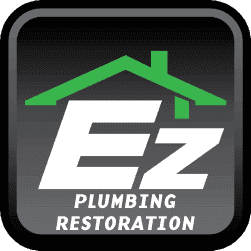Preventing Typical Deceptive Practices in the restoration Industry
Paid for a service and did not get the result is disheartening. And when we find this later, the feeling of deception is even worse, especially when money is involved in our house repairs. Confusing or misleading language is one wordplay tactic used by the restoration services to deceive customers, which customers should be vigilant of. In the case of residential restoration, a contract-based service from a reputable company or plumber is advisable.
This article guides you to prevent typical deceptive practices in the restoration industry. Let us begin discussing these misleading practices and how you should be vigilant, if you encounter them.
1. Low-quality Parts
While repairing or replacing, plumbers use substandard parts, which may or may not have a life span of even one day. A reliable plumber will not offer a warranty or guarantee on these parts.
Prevention: Local plumbers from a reputable company have more knowledge of tools and parts generally used in the area. They also know the source of purchase for these parts. So, hire a plumber from a reputable company that offers warranties and guarantees on their service. Ask for product warranty and guarantee receipts as you pay the bill.
2. Overcharging after services
Not quoting the details of the services and their cost during the time of booking can be later misused. An emergency restoration may also give an advantage to the plumber for charging too much.
Prevention: Before finalizing a restoration service, you should ensure that the estimated quote has all the details of the tasks. While searching, you should get multiple quotes to compare. The final quote should have the details of tasks, and their cost mentioned. The estimate generally includes a breakdown of labor costs, material costs, and any additional fees.
3. Bait-and-Switch
This is a common retailing tactic used in any industry, let alone the restoration industry. A lot of times heavy discounts on a service is offered while during the delivery only half of it is fulfilled.
Prevention: You should get in writing by drawing a contract for services offered and the products used while performing the restoration task. In the contract, you should also note the product’s model and serial number for the restoration task. You can ensure this through the warranty/ guarantee offered later.
4. Pressure-Sale Tactics
You may often encounter a technician claiming and emphasizing worst-case scenarios for using a particular service or product. There may also be some incidents when the plumber asks you to make an immediate decision. These are called pressure-sale tactics, to make the customer purchase a product or service.
Prevention: It is better to get multiple quotes for the service before concluding. In contrast to such technicians, a reputable restoration service will help you make an informed choice without rushing you.
5. Hiring Uninsured or unlicensed Plumbers
An unlicensed plumber or a plumber with fake documents will provide satisfactory service or even cause damage to your restoration system.
Prevention: As a customer, it is your responsibility to choose an insured and licensed plumber. A licensed plumber will provide high-quality work as taught in his training. He will be confident enough to take responsibility for his work, as he is insured. High-quality work not only ensures savings but peace of mind as well.
6. Incomplete Work
Examples:
“Changed the pipes, but left the faucets”;
Came for leaky pipe repair but did not adjust water pressure
Leaving the work incomplete is another deceptive practice used by technicians to leave us hanging, if they are not satisfied with the amount. This is also done to get more money from another visit.
Prevention: The contract signing again becomes essential. It generally states the timeline and scope of the project, and sometimes, even specific days or ranges can be specified. Incomplete jobs can be handled based on the terms written in the contract. Clearly outline penalties for project delays in the contract.
7. Lack of Transparency on Credentials
This leaves you with dissatisfactory or substandard workmanship.
This happens when you do not thoroughly check a plumber’s credentials while hiring. If you have checked the credentials, you can be assured of the quality of work and after services.
Prevention: A thorough background inspection is required every time you hire a plumber. You can research the plumber’s reputation, check online reviews, and ask for references from previous clients to ensure the plumber has a track record of quality work.
8. Requesting Cash Payments Only
To avoid tax reporting, technicians use the trick of asking for payments in cash. This can also be a case where a plumber, who is not qualified enough and performs low-quality work, may damage the system or leave the work incomplete.
Prevention: Use of paper trails such as checks and credit card modes are safe payment gateways.
9. Overpromising or Claiming Unrealistic Timelines
restoration problems are not resolved overnight. Rushing can only increase the chances of damage.
Prevention: While scheduling a service, make it a practice to ask multiple technicians and select one among two or three others. This way you can compare the timelines of the tasks you want to get done. As a homeowner, you should take an interest in the work and time a task requires. You may also ask your neighbors about the task or an experienced relative to get a clear picture.
10. Ignoring Safety Precautions
Hiring a reliable plumber is very crucial. A trained professional will know the safety tools and practices and when it is obligatory to follow them. Tasks such as drain cleaning, burst pipes, heavy water damage, mold growth, and overflowing toilets should not be handled without the use of safety gear and tools.
Prevention: Ensure that while visiting, a plumber has the necessary safety gear. He should be guiding the household members about the safety precautions at the time. Local plumbers are more aware of the safety guidelines to be complied with when installing or repairing a restoration system. Sometimes, plumbers are certified with the safety training workshops that they have attended. You can also check that they have insurance which covers damage to the customer’s properties, personal injury and medical expenses from accidents on the job.
Conclusion
Preventing deceptive practices in the restoration industry is crucial for ensuring the safety and satisfaction of customers. As highlighted, prevention practices are to be followed before and after hiring. Ensure that you have a written contract stating the timeline, cost, guarantee, warranty, materials and products used, and discuss extra charges for extra services. With vigilance, awareness and clear communication between the customer and the technician, such deceptive practices can be prevented.


